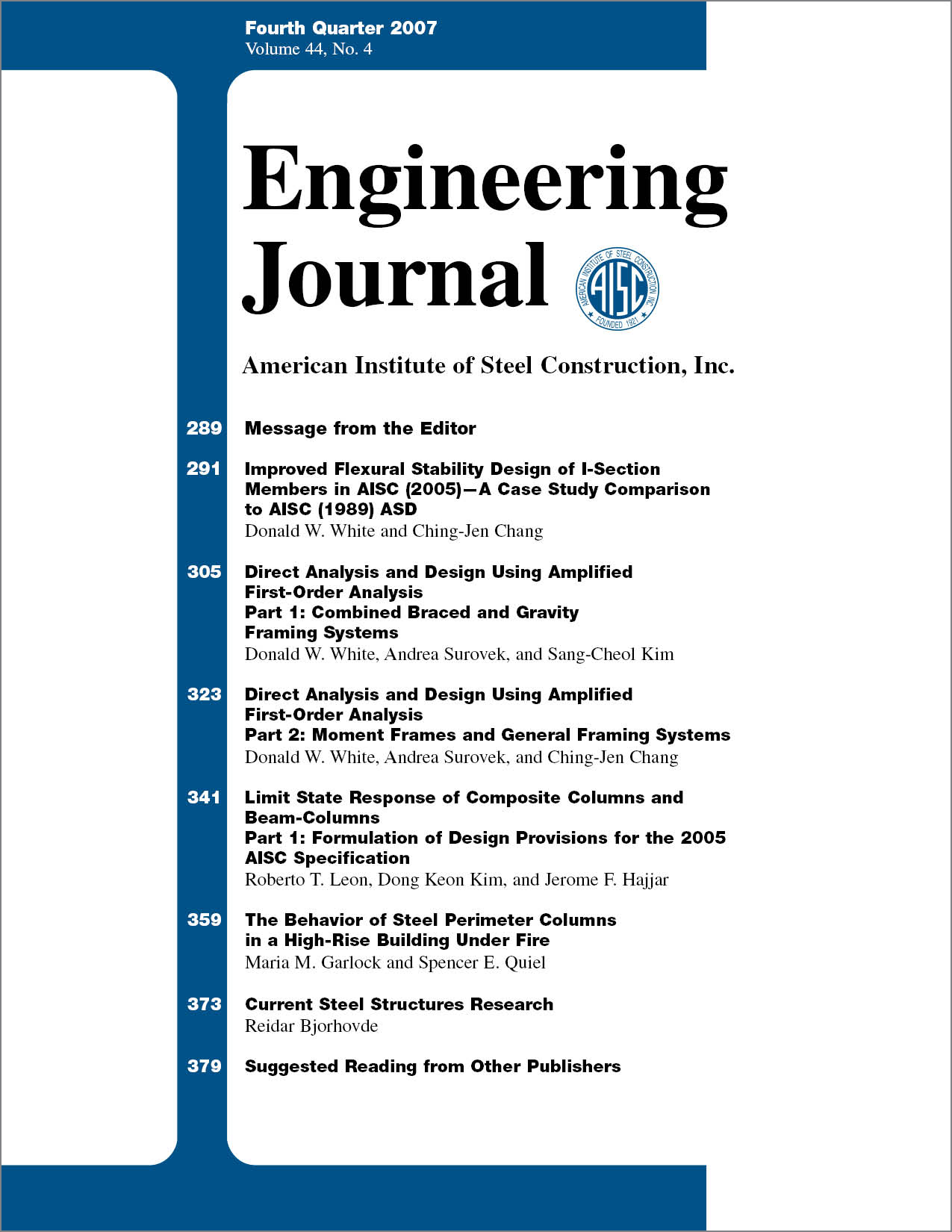Direct Analysis and Design Using Amplified First-Order Analysis Part II: Moment Frames and General Framing Systems
DOI:
https://doi.org/10.62913/engj.v44i4.920Keywords:
Analysis, Lateral Systems, Stability and BracingAbstract
This paper presents an application of the Direct Analysis Method (DM) introduced in the 2005 AISC Specification for Structural Steel Buildings for moment and general combined framing systems. The DM accounts explicitly for nominal initial out-of-plumbness of the framing as well as the reduction in the stiffness of the structure at the maximum strength limit of its most critical member or members. As a result, this approach provides a more rational estimate of the internal forces at the maximum strength limit. Also, the column and beam-column strength checks in moment frames may be based on K = 1 by using this method. One additional modification to a conventional elastic analysis is required in general for beam-columns in moment frames, in other words, the flexural rigidity must be reduced by an additional column inelastic stiffness reduction factor, tau, for columns loaded by axial forces in excess of 0.5Py. This paper proposes two modifications to the underlying amplified first-order elastic analysis approach presented in Part 1 of this paper (published in the same issue), to extend this procedure to general rectangular framing involving any combination of moment, braced and gravity systems. Suggestions are also provided for approximate handling of frames with large axial compression in the beams or rafters and/or nonrectangular geometry.

